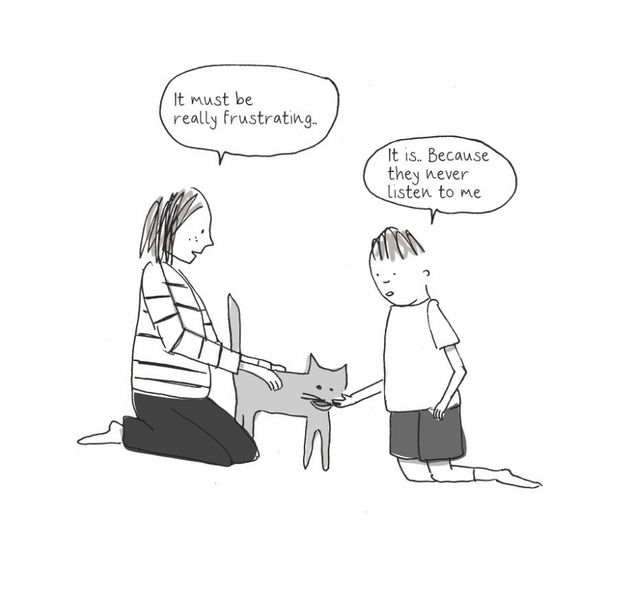


Sometimes terrible things happen. Maybe a road traffic accident, or the traumatic loss of a loved one. When it’s all over, it’s like your body remembers. You have flashbacks, or wake up in the night sweating. You are constantly on edge and can’t relax.
After trauma, we need to make sense of what happened for ourselves. We need to make it part of our life story, something that happened in the past. We all have the capacity to do that. We have the potential to heal from the things that have happened to us.
Sometimes that process can get stuck. We continue to feel as if we are about to be hit by a car, or that we are in the hospital waiting for news. We can’t move on in our lives, because we are stuck in the worst moment.
There are things you can do about that. Trauma therapy (like EMDR) can help, but there are also ways in which you can help yourself and your child to process traumatic events, and it’s those things I talk about in my webinars and courses.

Illustration by Eliza Fricker (www.missingthemark.blog). Whenever we talk about trauma, people want to know “What happened?”. What was it, the terrible thing which has left you feeling so unsafe and like your world has shattered? It’s often hard to answer, because it can feel like it’s hard to pin down what happened. Sometimes it’s obvious – a car crash, a bereavement – but often it’s not. Often the ‘trauma’ can feel like it doesn’t quite measure up to what they expect. A detention for the wrong haircut. A friend moving away. Difficulties with school.